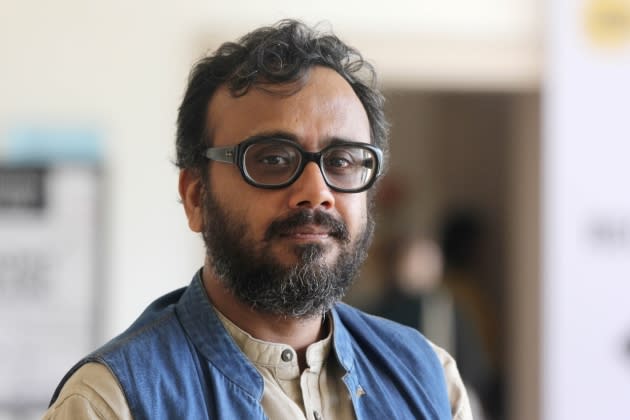Netflix Shelves Indian Film ‘Tees’, Director Dibakar Banerjee Seeks New Buyer

EXCLUSIVE: Indian director Dibakar Banerjee’s Tees has been shelved by Netflix and the auteur is now seeking a new home for the feature.
Netflix confirmed it has no plans to release the feature, but has not commented on the reasons for shelving it.
More from Deadline
Tees was announced in 2019 as a Netflix original under its previous title Freedom as “the story of an Indian family interwoven with the personal, ideological and sexual history of India.”
Banerjee shot the Hindi-language film in 2020 and delivered it to Netflix in May 2022, but it remained in limbo for several months until the streamer confirmed that it has no plans to proceed with a release.
The International Film Festival of Rotterdam (IFFR) invited Tees to premiere in the Limelight section of this year’s edition, but Banerjee was unable to secure Netflix’s approval to screen the film.
Netflix confirmed that it has given Banerjee permission to send links of the film to potential buyers, but the streamer does not appear to support festival screenings of films it’s not planning to release. Banerjee says this puts him in a “chicken-and-egg situation” as he doesn’t know how to reach buyers without a festival or market screening.
Banerjee also says he believes that the changing political climate in India contributed to Netflix’s decision.
“Netflix has never given me any other reason except they don’t know if this is the right time to release the film,” Banerjee told Deadline. “Given what happened with Tandav, the only conclusion to reach is that Netflix is reluctant to release the film out of fear of being similarly targeted. But the film I have made is very different to the web series in question.”
Tees is one of several features and series that have stalled or been put into turnaround by streaming platforms in an increasingly intolerant political environment in India. Most notably, in 2021 criminal charges were filed against Prime Video executives and members of the cast and crew of its Hindi-language series Tandav, following complaints from politicians in India’s ruling Bharatiya Janata Party (BJP) and their supporters.
Set across three time periods, Tees follows a middle-class Muslim family across three generations – the first section is set in Kashmir during unrest in 1990; the second section follows the daughter of the family, who finds it difficult to buy an apartment in modern-day Mumbai due to her religion; and the third section is set in a dystopian future and follows her son as he struggles to get his novel published.
It features an ensemble cast of respected stars and actors, including Naseeruddin Shah, Kalki Koechlin, Huma Qureshi, Shashank Arora and Neeraj Kabi.
Indian OTT content production is booming, but all the streamers face complexities around self-censorship, an increasingly authoritarian political environment, and a rise in religious intolerance and online trolling. Banerjee is known for films that touch on politics, social issues and sexuality – including Khosla Ka Ghosla, Shanghai and LSD: Love Sex Aur Dhoka – but says Tees is not a confrontational film.
“It’s not about any incendiary incidents – it’s about the daily life of an average middle-class urban family over three generations. But now my story is becoming eerily similar to one of the protagonists in the film,” he says.
“I also believe this is my best film to date. Although it has universal themes, it was made for an audience that remembers my other films, and is attuned to watching a film made by me, so it saddens me that they won’t be able to see it.”
Banerjee has started to contact distributors, investors, producers and other parties, both in India and internationally, who may be interested in acquiring the film from Netflix.
In the wake of the Tandav incident, several web series and films have been delayed in India, including Anurag Kashyap’s adaptation of Maximum City, a non-fiction novel about Mumbai written by Suketu Mehta, and Prime Video’s second season of crime drama Paatal Lok. Tandav was finally streamed after Prime Video made cuts and criminal charges dropped when executives agreed to assist in an investigation.
Streaming platforms in India operate under a system of self-censorship, with broad guidelines provided by the Ministry of Information & Broadcasting, through which they are required to participate in a three-tier “grievance redressal mechanism” to deal with viewer complaints. Grievances that are escalated to the third level are dealt with directly by the I&B Ministry.
Best of Deadline
Sign up for Deadline's Newsletter. For the latest news, follow us on Facebook, Twitter, and Instagram.